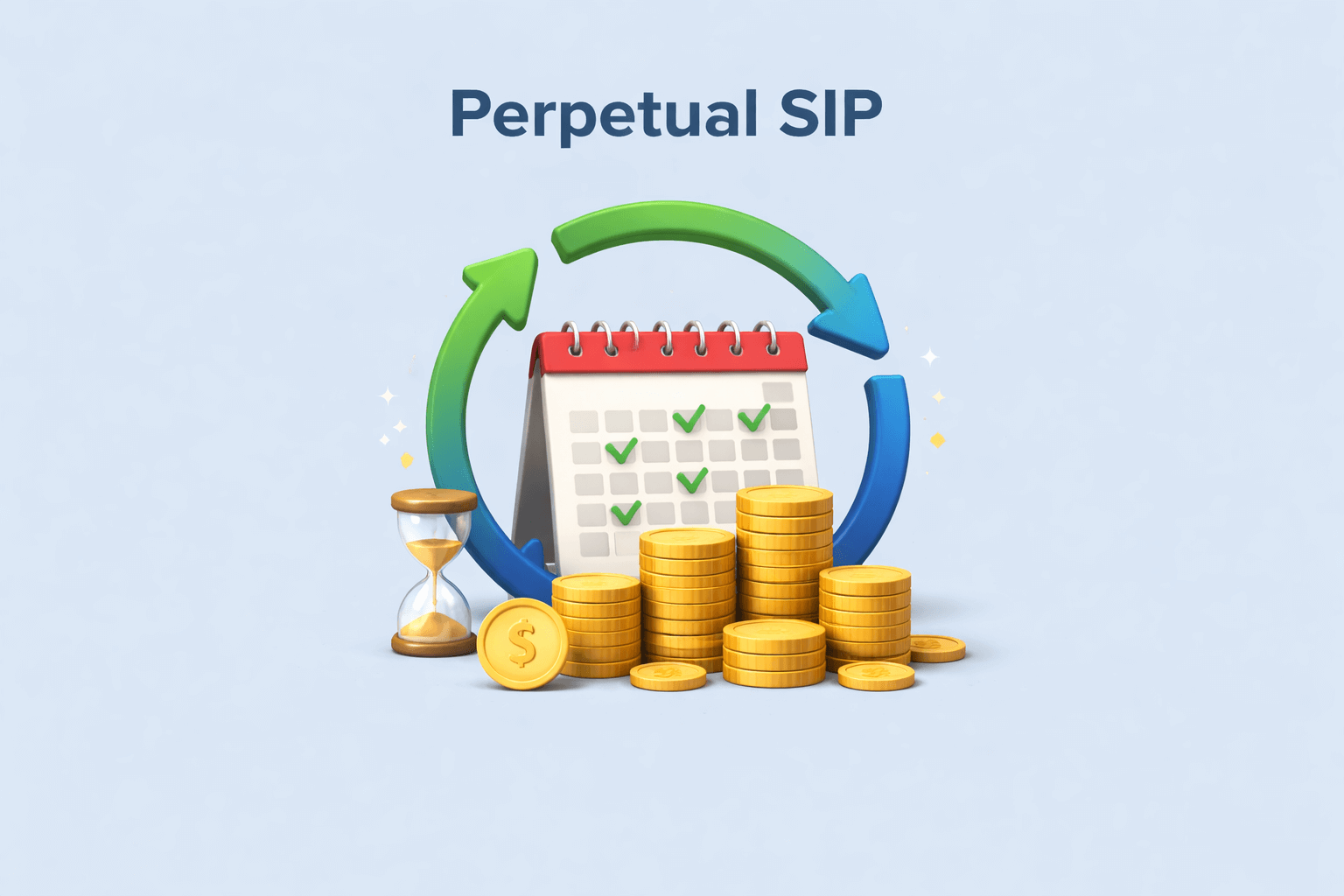- Home
- Blog
- Mutual Funds
- Multi Cap Vs Flexi Cap
- Multi Cap Vs Flexi Cap
Multi Cap Vs Flexi Cap

- Published Date: September 13, 2024
- Updated Date: June 17, 2025
- By Team Choice
When investing in mutual funds, understanding the nuances between different fund types is crucial for making informed decisions. Two popular options that often confuse investors are Multi-Cap and Flexi-Cap funds. Both categories aim to provide growth opportunities by investing across various market capitalisations. Still, they do so with distinct strategies and risk profiles.
This article will explore the key differences between Multi Cap Vs. Flexi Cap funds, helping you determine which investment approach aligns best with your financial goals and risk tolerance. Whether you're a seasoned investor or just starting your journey, this article will provide valuable insights into these versatile investment options.
What are Multicap Funds?
Multi-Cap Funds are mutual funds that invest in a diverse mix of stocks from various market capitalisations, including large-cap, mid-cap, and small-cap stocks. This strategy enables fund managers to adjust to market changes by reallocating assets based on current opportunities.
The main goal of Multi-Cap Funds is to achieve long-term capital growth by investing in high-quality stocks across different sectors. These funds provide diversification, flexibility, and the potential for steady performance throughout market cycles, making them ideal for investors with moderate risk tolerance.
Example
Suppose you invest in a multi-cap fund like the ABC Equity Multi-Cap Fund. This fund might allocate 50% of its portfolio to large-cap companies like Reliance Industries, 30% to mid-cap companies like Tata Chemicals, and 20% to small-cap companies like PVR Ltd. This diversified approach helps in managing risk while providing the opportunity for growth across various sectors and market conditions.
What are Flexi Cap Funds?
Flexi-cap funds are a type of mutual fund that invests in companies across different market capitalisations, including large-cap, mid-cap, and small-cap stocks. Unlike other funds restricted to specific market caps, flexi-cap funds allow fund managers to allocate investments based on market conditions and opportunities.
This allows for greater diversification and the potential for higher returns. Fund managers have the flexibility to shift investments among various market capitalisations to enhance performance and mitigate risk.
Example:
Imagine you invest in the XYZ Flexi-Cap Fund. In a bullish market, the fund manager may invest heavily in small-cap and mid-cap stocks like HDFC Bank or Godrej Consumer Products to capitalise on growth opportunities.
Conversely, in a volatile or bearish market, the fund might shift its focus to more stable large-cap stocks like Infosys or Hindustan Unilever. This flexibility allows the fund to adapt to changing market dynamics, potentially offering better risk-adjusted returns over time.
Differences Between Multi-Cap Funds & Flexi-Cap Funds
When investing in mutual funds, two popular options are multi-cap and flexi-cap funds. Both types aim to provide diversification across different market capitalisations, but they have distinct characteristics that cater to different investment strategies.
| Parameter | Multi-Cap Funds | Flexi-Cap Funds |
|---|---|---|
| Definition | Invests in stocks across large-cap, mid-cap, and small-cap segments. | Invests in stocks of any market capitalization without restrictions. |
| Market Capitalization | Maintains a balanced exposure to large, mid, and small caps. | Can shift between market caps based on market conditions and opportunities. |
| Investment Strategy | Follows a fixed allocation across different market caps. | Adopts a more flexible strategy, adjusting allocations dynamically. |
| Risk Level | Moderate risk, given the diversified nature across segments. | Varies; can be riskier as fund managers can heavily invest in small or mid-caps. |
| Regulatory Guidelines | Must adhere to SEBI regulations on investment in each market cap. | Fewer restrictions; fund managers have more discretion to decide allocations. |
| Performance Consistency | May offer stable returns due to diversification across caps. | Returns can be more volatile, depending on the market cap focus at any time. |
| Expense Ratios | Typically has moderate to high expense ratios due to active management. | Can have varying expense ratios based on fund management style. |
| Investor Suitability | Suitable for conservative investors seeking balanced growth. | Ideal for aggressive investors looking for higher returns through dynamic allocation. |
What are the Features of Multi-Cap Funds?
The features of Multi-cap funds are as follows:
1. Diverse Portfolio
Multi-cap funds invest across companies of different sizes and sectors, providing a balanced exposure to various market segments. This diversification helps spread risk and capture growth opportunities across the market.
2. Risk Management
By investing in a mix of large, mid, and small-cap stocks, multi-cap funds can manage risk more effectively. Large-cap stocks offer stability, while mid and small-cap stocks provide growth potential, creating a balanced risk profile.
3. Fund Manager’s Impact
The performance of multi-cap funds heavily depends on the fund manager’s expertise in selecting the right mix of stocks. A skilled fund manager can navigate market conditions and make strategic decisions to optimise returns.
4. Flexibility
Multi-cap funds have the flexibility to adjust their portfolio allocation based on market conditions. This allows them to capitalise on opportunities and mitigate risks by shifting investments between large, mid, and small-cap stocks as needed.
What are the Benefits of Multi-Cap Funds?
Multi-cap funds are mutual funds that invest in a mix of large-cap, mid-cap, and small-cap stocks. This diversified approach offers several benefits to investors, such as:
1. Diversification Advantage
By investing in companies of various sizes, multi-cap funds spread risk across different market segments. This reduces the impact of poor performance in any single segment on the overall portfolio.
2. Improved Risk-Adjusted Returns
Multi-cap funds aim to balance risk and return by investing in a mix of stable large-cap stocks and potentially high-growth mid-cap and small-cap stocks. This can lead to better risk-adjusted returns over time.
3. Professional Fund Management
These funds are managed by experienced fund managers who actively select and adjust the portfolio based on market conditions and company performance. This professional management can enhance the potential for returns.
4. Tax Efficiency
Multi-cap funds held for more than one year qualify for long-term capital gains tax, generally lower than short-term capital gains tax. This can make them a tax-efficient investment option for long-term investors.
5. Potential for Higher Returns
By including small-cap and mid-cap stocks, which have higher growth potential compared to large-cap stocks, multi-cap funds can offer the possibility of higher returns, especially during bullish market phases.
Who Should Invest in Multi-Cap Funds?
Multi-cap funds offer diversification and the potential for growth. Here are some pointers on who should consider investing in multi-cap funds:
1. Investors With a Long-Term Investment Horizon
Multi-cap funds are typically suitable for investors comfortable with market volatility and have a long-term investment horizon of at least 5-7 years. This allows the fund manager to navigate market cycles and potentially generate higher returns over the long term.
2,. Investors Seeking Diversification
Multi-cap funds invest in stocks across different market capitalisations, which can help to reduce risk and improve returns. This diversification can be particularly beneficial during market downturns, when some sectors or market capitalisations may outperform others.
3. Investors who Want to Avoid the Need to Manage Their Portfolios Actively
Multi-cap funds are professionally managed by experienced fund managers who select and allocate investments based on their expertise and market analysis. This can save investors time and effort, as they don't need to monitor and rebalance their portfolio constantly.
4. Investors who are Comfortable With Moderate Risk
Multi-cap funds carry moderate risk compared to other investment options like equity funds or debt funds. While they offer the potential for higher returns than fixed-income investments, they are also subject to market fluctuations. Investors should be comfortable with the associated risk before investing in multi-cap funds.
What are the Drawbacks of Multi-Cap Funds?
Multi-cap funds offer a diversified investment approach, but they also come with certain drawbacks. Here are some key considerations:
1. Performance Variability
Multi-cap funds invest across a wide range of market capitalisations, which can lead to performance fluctuations. If large-cap stocks outperform, the fund's performance may lag, and vice versa.
2. Potential for Underperformance
In certain market conditions, some sectors or market capitalisations may underperform significantly. If the fund's allocation to these underperforming segments is substantial, it can drag down the overall returns.
3. Higher Expense Ratios
Multi-cap funds typically have higher expense ratios compared to single-cap funds due to the increased complexity of managing a diversified portfolio across market capitalisations.
4. Lack of Focus
The broad investment mandate of multi-cap funds can make it challenging for fund managers to achieve outsized returns. Investors seeking concentrated exposure to specific market segments or investment styles may find single-cap funds more suitable.
What are the Features of Flexi-Cap Funds?
Flexi-cap funds are a type of mutual fund in India that provides flexibility in terms of investment across various market capitalisations. Below are the key features of Flexi-cap funds:
1. No Market Cap Restrictions
Unlike other funds, flexi-cap funds can invest in companies of any size, large-cap, mid-cap, or small-cap. This means that the fund manager has the freedom to choose the best investment opportunities without being limited to a specific market capitalisation. This flexibility allows the fund to capture growth opportunities across the entire market spectrum.
2. Dynamic Allocation
Fund managers can adjust the allocation of assets based on market conditions and opportunities, allowing for strategic shifts between different market caps. For example, suppose the manager believes that mid-cap stocks are likely to outperform.
In that case, they can increase the fund’s exposure to mid-cap stocks. Conversely, if large-cap stocks are expected to perform better, the manager can shift the allocation accordingly. This dynamic approach helps in optimising returns.
3. Diversification
These funds offer a diversified portfolio by investing across various sectors and industries, reducing the risk associated with investing in a single market segment. By spreading investments across different market caps and sectors, flexi-cap funds can mitigate the impact of poor performance in any one area. This diversification helps in achieving a more balanced risk-return profile.
4. Open-Ended Scheme
Flexi-cap funds are open-ended, meaning investors can buy and sell units at any time, providing liquidity and flexibility. This feature allows investors to enter or exit the fund based on their financial goals and market outlook. The open-ended nature of these funds ensures that investors have the flexibility to manage their investments according to their needs.
What are the Benefits of Flexi-Cap Funds?
Flexi-cap funds offer several advantages to investors, making them a popular choice for those seeking diversified and flexible investment options. They are as follows:
1. Flexibility
The ability to invest across different market capitalisations allows fund managers to capitalise on market opportunities and trends. This flexibility enables the fund to adapt to changing market conditions and take advantage of growth opportunities in various segments. It also allows the fund to respond to economic cycles and market fluctuations effectively.
2. Risk Management
By diversifying investments across various sectors and industries, flexi-cap funds help in managing and mitigating risks. Diversification reduces the impact of adverse performance in any single sector or industry, thereby lowering the overall risk of the portfolio. This risk management strategy helps in protecting the investor’s capital and achieving more stable returns.
3. Potential for Higher Returns
The dynamic allocation strategy can potentially lead to higher returns as fund managers can invest in high-growth opportunities across different market caps. By identifying and investing in companies with strong growth potential, flexi-cap funds can enhance the overall return of the portfolio. This potential for higher returns makes these funds attractive to investors seeking capital appreciation.
4. Adaptability
Flexi-cap funds can adapt to changing market conditions, making them suitable for various market environments. Whether the market is bullish or bearish, the fund manager can adjust the portfolio to align with the prevailing market trends. This adaptability ensures that the fund remains relevant and can perform well in different market scenarios.
5. Professional Management
Investors benefit from the expertise of professional fund managers who actively manage their portfolios to maximise returns and minimise risks. These fund managers have the knowledge and experience to make informed investment decisions, conduct thorough research, and implement effective strategies. Their professional management helps in achieving the fund’s investment objectives and delivering consistent performance
Who Should Invest in Flexi-Cap Funds?
Flexi-cap funds offer investors the flexibility to invest across various market capitalisations, making them an attractive option for those seeking growth potential. However, they are best suited for certain types of investors. They are:
1. Long-Term Investors
Investors with a long-term investment horizon can benefit from flexi-cap funds. Over time, the potential for capital appreciation in a dynamic portfolio that shifts between market caps can lead to significant returns, making it suitable for those aiming to build wealth over several years.
2. Those Seeking Inflation Hedge
With the potential for higher returns, flexi-cap funds can act as a hedge against inflation. Investors who want to ensure their investments grow at a rate that outpaces inflation can consider these funds part of their strategy.
3. Investors New to Equity Markets
Flexi-cap funds can be a good entry point for new investors wanting exposure to equity markets without the need to choose individual stocks. These funds allow investors to benefit from professional management and diversification while they gain experience in the stock market.
4. Investors Focusing on Growth
Those primarily focused on capital growth rather than income generation will find flexi-cap funds appealing. The potential for significant capital appreciation aligns well with growth-oriented investment strategies.
5. Tax-Conscious Investors
For investors in higher tax brackets, flexi-cap funds can be a tax-efficient investment option. The long-term capital gains tax applies to equities held for over a year, making them a more favourable choice compared to fixed-income investments.
What are the Drawbacks of Flexi-Cap Funds?
Flexi-cap funds offer diversification and flexibility, but they also come with certain drawbacks. Here are a few key points to consider:
1. Market Risk
While diversification across market caps can help mitigate some risks, flexi-cap funds are still subject to overall market fluctuations. If the market experiences a downturn, the fund's value may decline.
2. Fund Manager Discretion
The performance of a flexible-cap fund heavily relies on the skill and judgment of the fund manager. If the manager makes poor investment decisions, the fund's returns may suffer.
3. Potential for Underperformance
The flexibility to invest across different market caps can sometimes lead to missed opportunities. Suppose the fund manager fails to identify the best-performing market segment at a given time. In that case, the fund's returns may lag behind those of more focused funds.
4. Higher Expense Ratios
Flexi-cap funds often have higher expense ratios compared to index funds or some other fund categories. This is due to the additional research and analysis required to manage a diversified portfolio across multiple market caps.
The Key Takeaway
Both Multi Cap Vs Flexi Cap offer unique advantages for investors seeking diversification and growth. Multi-cap funds provide exposure to companies of all sizes, balancing risk and reward. In contrast, flexi-cap funds offer the flexibility to adjust allocations based on market conditions, potentially enhancing returns.
Ultimately, the choice between these two types of funds depends on your investment goals, risk tolerance, and market outlook. By understanding the key differences and aligning them with your financial strategy, you can make informed decisions that pave the way for long-term wealth creation. Do you want to know more about Multi Cap Vs Flexi Cap? If yes, then read the Choice blogs to know more.
FAQs
Q1. Is a multi-cap fund good?
Yes, multi-cap funds are good for diversification as they invest in large, mid, and small-cap stocks, helping to balance risk and potential returns.
Q2. Which cap is better for SIP?
Mid-cap funds are often considered better for SIPs due to their potential for higher growth over the long term.
Q3. Which SIP gives a 40% return?
No SIP guarantees a 40% return, as returns depend on market conditions and the specific fund's performance.
Q4. Which type of SIP is best?
The best type of SIP depends on your financial goals. Regular SIPs are suitable for most investors, while top-up SIPs are ideal for those looking to increase their contributions over time.
Q5. Which SIP is best for 3 years?
For a 3-year investment horizon, consider debt funds or balanced funds, as they provide stability and moderate returns.
Recommended for you

Perpetual SIP: Meaning, Features & Benefits

FII DII Data - Live Data

Share Market Prediction For Tomorrow
